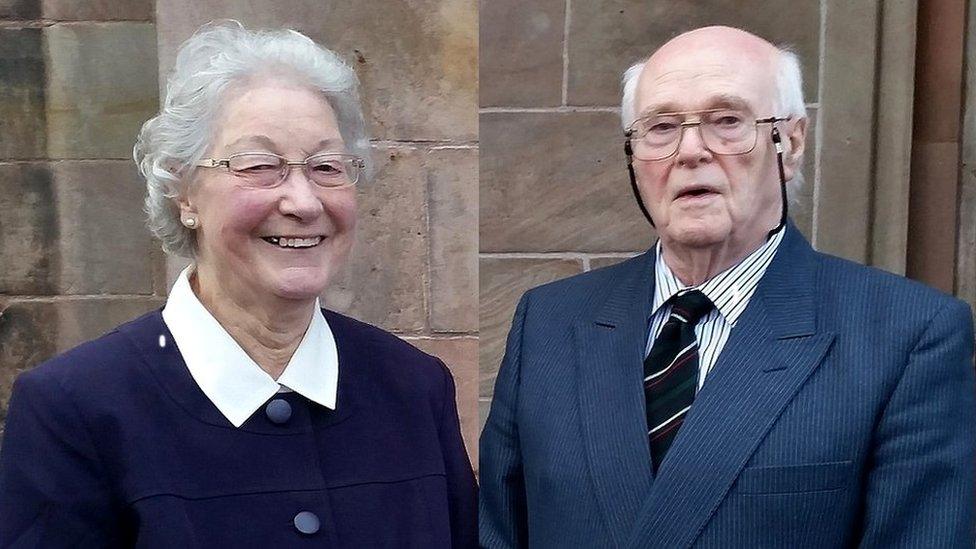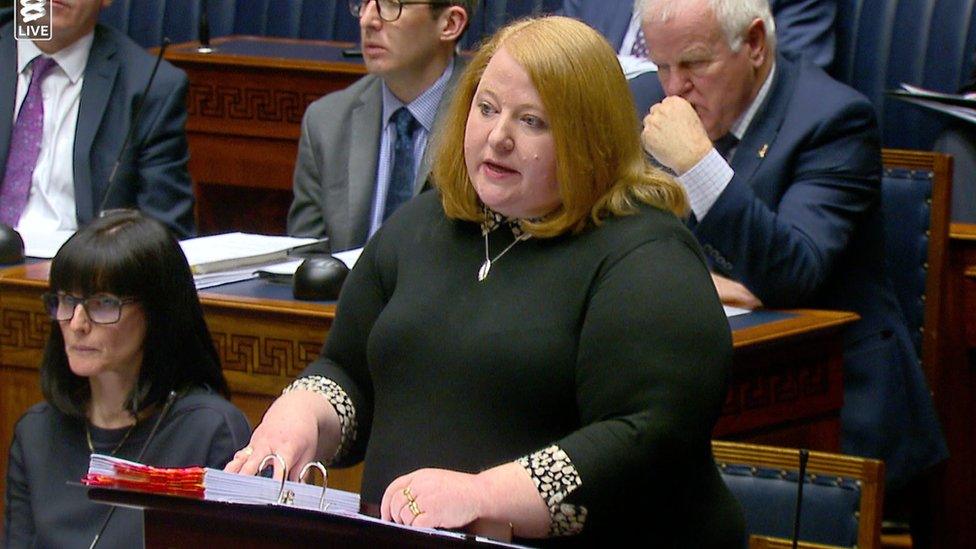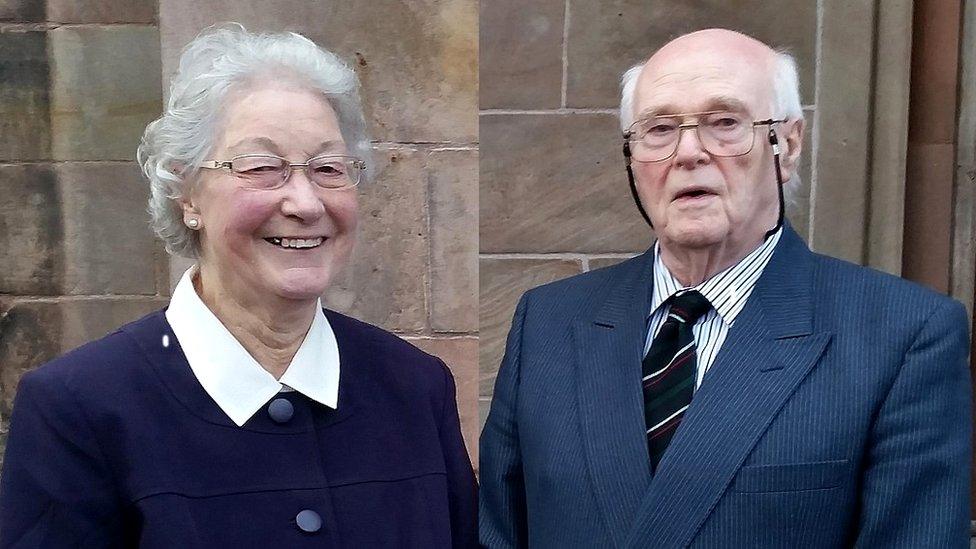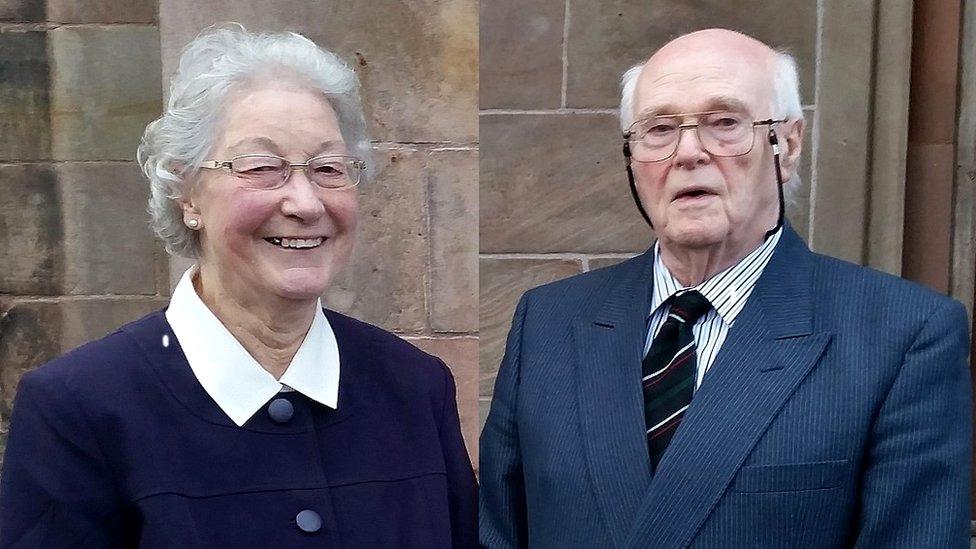Northern Ireland victims of crime commissioner being considered
- Published

Between June 2019 and May 2020 there were 102,521 crimes recorded in Northern Ireland
A victims' commissioner with a wider remit is being considered by the Department of Justice.
Northern Ireland's current commissioner only deals with cases related to the Troubles.
In England and Wales, the same office is independent of government and advocates for people impacted by all types of crime and their families.
Victims groups have been calling for Northern Ireland to be brought into line with other parts of the UK.
Justice Minister Naomi Long has appointed a departmental group to look at the remit of a general victims' commissioner as "a priority".
A Department of Justice spokesperson said: "A ministerially-commissioned reference group is being appointed to advise the justice minister on the potential remit of a general victims of crime commissioner for Northern Ireland.
"The group will include representatives from key organisations who can speak on behalf of victims and criminal justice organisations responsible for providing information and support to victims as they move through the criminal justice system."
Northern Ireland's current commissioner for victims and survivors deals with cases related to the Troubles only.
The BBC understands that justice department's reference group will not be looking at widening the remit of the current commissioner and instead will be looking at the potential for a separate office of a general victims of crime commissioner.
Victims campaign
Under consideration is whether the department could extend the role of Northern Ireland's current victims' commissioner to include non-Troubles cases or establish a second victims' commissioner in NI to handle non-Troubles crime.
It follows a campaign by some bereaved families and victims of crime.
BBC News NI previously spoke to the family of an elderly couple killed in County Armagh by a man with severe mental health issues.

Marjorie and Michael Cawdery were found dead in their home in Portadown
Michael and Marjorie Cawdery, both 83, died in a "frenzied" knife attack by Thomas McEntee in their home in 2017.
Their family said they felt "discriminated against" as victims, because they fell outside the remit of NI's victim commissioner.
The couples' son-in-law, Charles Little, welcomed the latest announcement.
"It is high time that victims in Northern Ireland had the same rights and support as victims in the rest of the UK," he said.
"The appointment of a victims commissioner for all victims of crime and victims of mental health mismanagement is essential and hopefully the steps the minister is taking will lead to that outcome."
'Independence'
Northern Ireland's current victims' commissioner for victims and survivors is Judith Thompson.
Her office works under specific legislation that defines a victim as someone who has been physically or psychologically injured, or bereaved, as a result of a "conflict-related incident" in Northern Ireland.
The salary band for Northern Ireland's current victims' commissioner is £80,000 to £85,000 per year.
One of the commissioner's main duties is to provide advice to the government on matters affecting victims and survivors of the Troubles in Northern Ireland and their loved ones.
The commissioner for victims in England and Wales was set up in 2010; it is independent of government and advocates for victims of all types of crime and their families.

Justice Minister Naomi Long has appointed a group to advise her on the potential remit of a general victims' of crime commissioner for NI
Between June 2019 and May 2020, there were 102,521 crimes recorded in Northern Ireland.
Violence against the person crimes, such as assault and grievous bodily harm, increased by 10% on the previous year.
Geraldine Hanna, from Victims Support NI, said the department's decision to set up a group to explore the remit of a commissioner for all types of crime was "the first significant step towards making this a reality".
"We believe the introduction of a commissioner is long overdue," she said.
"Such a role should have the appropriate power, resources and independence from government to be able to hold all agencies to account."
- Published17 July 2019

- Published28 June 2018

- Published22 June 2018
